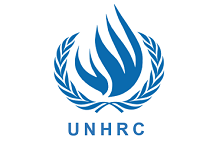37th Session of the Human Rights Council: Opening session
26 Feb 2018 01:00h
Event report
Opening of the session
The 37th Session of the Human Rights Council was opened by introductory statements recalling the 70th anniversary of the Universal Declaration of Human Rights, the international achievements made to protect human rights, and the need of implementation on the national level.
It was generally agreed that further steps and efforts must be taken to strengthen the role of the Human Rights Council in its normative and tangible function, as well as to further enhance the co-operation among United Nations agencies regarding human rights. The UN Secretary General, H.E. Mr António Guterres, made a statement in which he recalled the resolution approved by the Security Council to suspend hostilities in Syria – whose war-zones he described as ‘hell on earth’ – and to allow for the provision of humanitarian aid. The focus on the violations of human rights in the armed conflict that affects Syria was further underlined by the UN High Commissioner for Human Rights, Mr Zeid Ra’ad Al Hussein. He stated that ‘the responsibility for the continuation of so much pain lies with the five permanent members of the UN Security Council’. A clear statement emerged from the introductory panel: human rights protection is not in conflict with national sovereignty and its implementation can help in preventing conflict and implementing development in the achievement of the sustainable development goals (SDGs), as well as with specific initiatives on sensitive issues such as migration and the Global Compact for Migration.
High-level segment (HLS)
The segment was opened with a statement by the host country, delivered by the Federal Councilor and Head of the Federal Department of Foreign Affairs (FDFA) of Switzerland, H.E. Mr Ignazio Cassis, on the importance of political and economic stability to guarantee the promotion of human rights. The High-Level Statement Panel then brought to the floor the addressment of human rights through both national implementation and international co-operation.
Statements by member states reiterated the rule of law on the national and international levels to promote human rights and prevent humanitarian violations. The conflicts in Syria and Yemen are among some of the issues that were raised. Furthermore, the role of information and information technology was highlighted by representatives during their statements. Norway raised the importance of information for development: better access to information can drive to further developments, and more resources need to be deployed. The role of information for better policy-development was further stressed by Angola, with an additional level to the role of civil society in providing and improving information. Following the statements, Uzbekistan recalled their national implementations made in the field of the Internet use for the economy, which give a voice to civil society, designed as a new ‘public movement’ through these new means. Finally, Internet-related issues were raised and can be summarised in the argument by Brazil, that rights in the digital age will increasingly define our time.
Panel discussion: The promotion and protection of human rights in the light of the universal periodic review mechanism: challenges and opportunities
The annual panel discussion of the Human Rights Council was opened by the President of the General Assembly, Mr Miroslav Lajčák. This year’s main topic was the role and importance of the Universal Periodic Review (UPR). The discussion revolved around four main questions:
-
How can the UPR better support a stronger coordination of the implementation efforts at the national level?
-
How can the UPR mechanism contribute to international co-operation in the field of human rights and ensure the full enjoyment of all human rights by all persons without discrimination?
-
How can the secretary-general and the high commissioner for human rights provide better support to member states to strengthen the national human rights protection system?
-
How can the donor community better leverage the UPR in order to support the efforts of member states in the follow-up to UPR’s accepted recommendations?
The Minister of Foreign Affairs and Human Mobility of Ecuador, Ms María Fernanda Espinosa Garcés, introduced the national reforms in which particular attention was given to the digital development of governmental services. The minister presented a basic tool for inter-institutional co-operation for entering reports on human rights violations, as well as recommendations for other provisions (for more information see: https://www.justicia.gob.ec/ministerio-de-justicia-presento-la-plataforma-siderechos/).
Digital and technical support of the UPR was requested by numerous parties, especially from those in developing states. Questions were raised about the possibility of enhancing technology for the implementation of UPR recommendations. In line with this, civil society representatives showcased previous recommendations that had been made regarding the creation of an online tool for the monitoring of the UPR’s implementation.
Related topics
Related event

